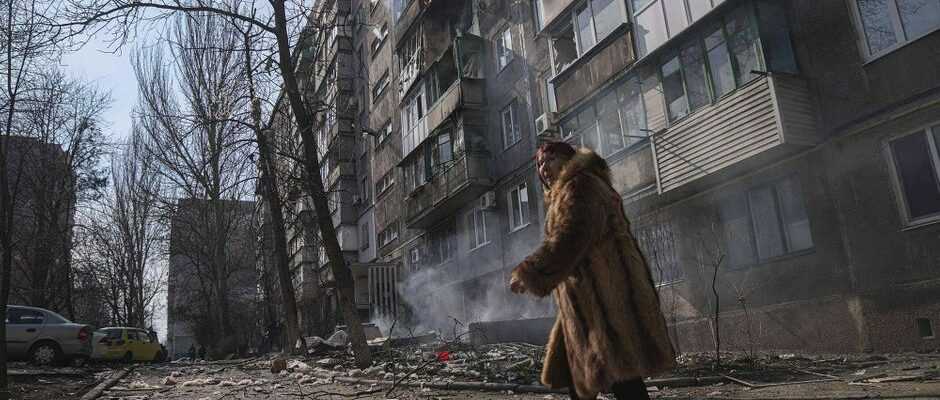Augustin Augier, emergency coordinator for Doctors Without Borders, is in Palanca, a Moldavian town a few kilometers from Ukraine, after spending several days in Lviv. He returns for Paris Match to the situation in Ukraine, where there are around 90 international employees in addition to the Ukrainians working for the NGO.
Paris Match. What were the emergency measures taken by MSF in Ukraine?
Augustin Auger. The emergency measures were to send teams, made up of coordinators, surgical teams, doctors, logisticians with medical and surgical equipment to support hospitals. We sent a team from Poland and one from Moldova, the last in Odessa and the first is in Vinnytsia, in the center of the country.
MSF already had facilities in the Donbass for several years…
There were projects in the Donbass, which evacuated everything, they left to escalate the conflict, in particular because they were employees who lived with their families and who fled to seek shelter. We have replaced them with teams specialized in emergency situations.
To read :Increasingly urgent humanitarian needs in eastern Ukraine
How many people have been taken care of by MSF?
Today, we are not in direct care of patients but in support of health structures. Ukrainian doctors, nurses and carers are well organized and have specific needs: pre-ruptures of certain molecules, lack of certain surgical materials. They have needs in terms of training: unfortunately, our MSF teams have expertise in triage, faced with the massive influx of wounded. We can bring them.
What are the particularities of the conflict in Ukraine from a humanitarian point of view?
There are several specificities: it is a country with a more advanced level of development than the countries in which we usually operate, whether in Africa or the Middle East, with a solid health system, very large hospitals with dozens of operating theaters, medical personnel trained with specialists. The other specificity is the nature of the needs: we see it in particularly dramatic places, in besieged cities like Mariupol. There are 300,000 people locked up, who cannot leave, have been subjected to almost constant bombardments for two weeks, they no longer have water, food, electricity or heating. The healthcare structures are damaged, overwhelmed by the injured and are beginning to lack a great deal of things.
This type of siege with this quantity of population is extremely rare and complicated: today, we cannot do much, we cannot go out, nor send medical equipment, nor evacuate the wounded, which we would like to do. But we have to be ready if necessary, so that we can do it.
There are other cities which are under pressure, like Kharkiv, Chernihiv, Sumy which are besieged but where we can still send equipment. These are interventions that we are not used to doing, with major access and security problems for the teams. You have to manage to understand the needs by staying not too far away, but you can’t send teams to places that are constantly bombarded, that’s one of the specificities of this crisis.
“Hardware requirements are extremely specific”
Some of your employees are still in Mariupol…
There was an MSF project in Mariupol, where there are still some local MSF staff. A number were able to come out on Tuesday, but we have no news of those who are still there. We are very worried for them, as for the 300,000 people who would remain stranded.
To read :“Hundreds” of people under the rubble of the bombed theater in Mariupol
How can we help from France?
We can help by supporting professional international organizations like MSF, which need financial support, for this crisis as for others, in Nigeria, Yemen and Afghanistan. The equipment needs are extremely specific, you have to be able to be on the ground to discuss with Ukrainian medical colleagues, understand their needs and order via our central purchasing office in France.
After 12 days spent in the area, how are you coping with the situation?
We are in relatively secure places, we do not feel in physical danger. But it is a very difficult crisis because the places where the needs are the greatest, the suffering the greatest are not accessible. We are not in a position to help them, it is difficult for the teams.
Follow the actions of Doctors Without Borders in Ukraine on their website
Any reproduction prohibited
